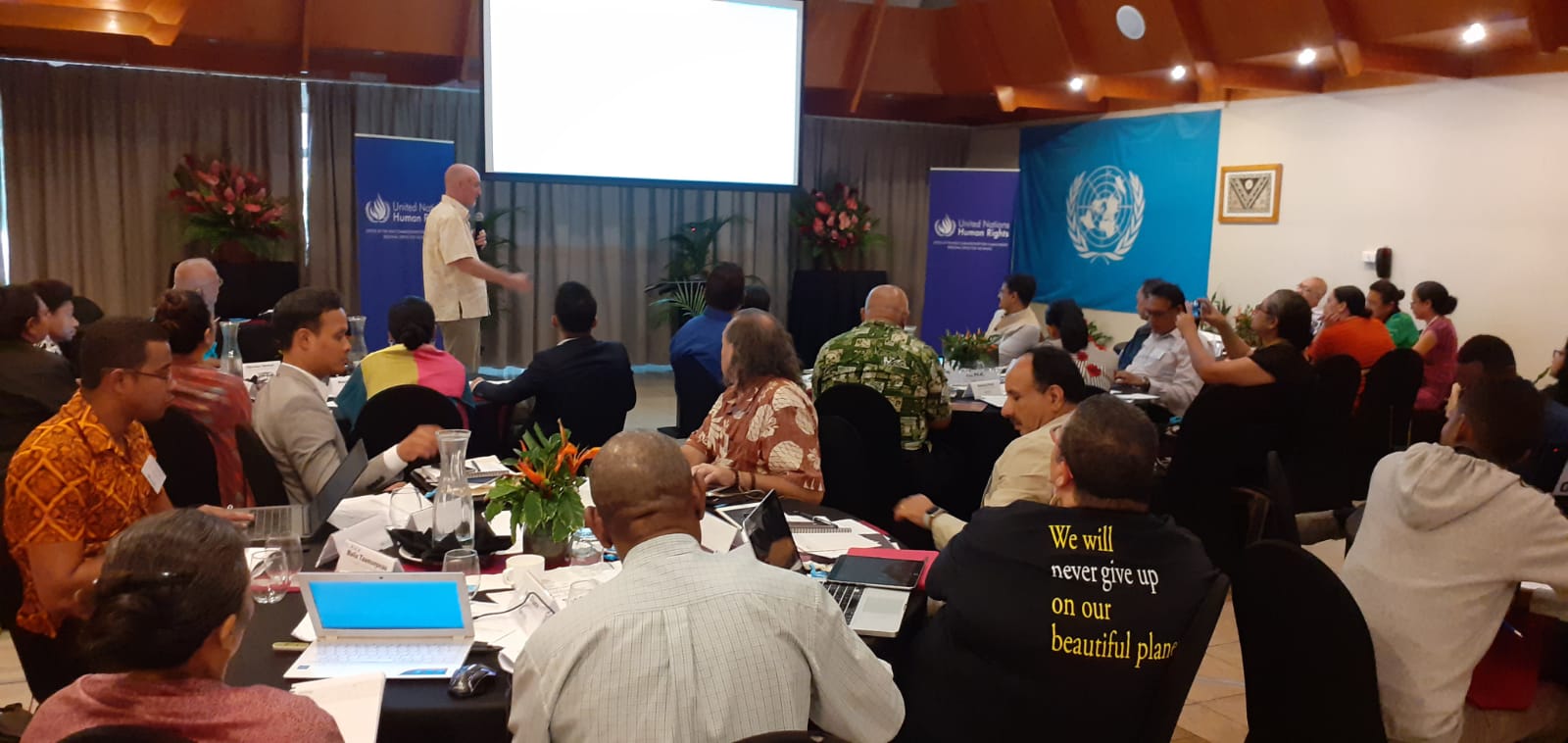United Nations: Conference on climate change and human rights, Fiji, 5-7 August 2019. Michelle Bachelet invites to walk the talk

The Office of the High Commissioner for Human Rights, Regional Office for the Pacific (OHCHR) has organized a three day conference on climate change and human rights ( HRCCC) from 5-7 August 2019 at Nadi, Fiji.
Participants from the Governments, Civil Society Organizations, International Organizations, National Human Rights Institutions from the Pacific nations attended the event.
On that occasion the United Nations High Commissioner for Human Rights, Michelle Bachelet, issue a statement concerning climate change and human rights:
“The climate crisis is accelerating. Global heating already affects the human rights of millions of people exposed to its adverse effects each year. And these effects are growing worse.
The people of island nations are among those most immediately affected, with daily impact on the effective enjoyment of their rights to water and sanitation, health, education, food, work, adequate housing, the right to self-determination. The very existence of some States is under threat.
We must gather support for immediate and far-reaching action by States and businesses around the world.
This important meeting, in a region endangered by the consequences of climate change, is most welcome. In particular, I am pleased that the focus will be on the links between climate change and human rights.
Government officials, civil society activists and representatives of business and of national human rights institutions will come together from 14 Pacific nations, to frame new messages, shape strong partnerships, and define clear paths of action.
In recent years, the Pacific region has led the world in recognising the reality of climate change, and in taking measures for climate resilience, mitigation and adaptation.
Voices from this region have been prominent in the global call for climate justice.
Today, climate activists from across the world are relaying your call for a new, green global economy, one which transitions us to a safer and greener world and which could provide millions of sustainable jobs and new opportunities for inclusion, while it also decreases environmental risks.
But it’s not enough. The climate emergency is moving faster than the international community. We are beginning to see irrevocable damage to the rights of many people, especially the most vulnerable, those who live in precarious circumstances and lack the financial resources to help them adapt or recover.
We need to keep innovating and advocating until people across the world join our calls and demand change.
We need to carry these messages to the Climate Action Summit in September, and to the COP 25 in Chile, in December.
We are facing an emergency. An emergency that threatens immense damage to your unique islands and the cultures your communities preserve and cherish.
The international community has an obligation to take action to stop the climate crisis from deepening – and to provide resources and technical support for your adaptation efforts.
My Office will stand with you in your call for your rights to be recognised and upheld.
We all know what we need to do, let’s walk the talk!”

